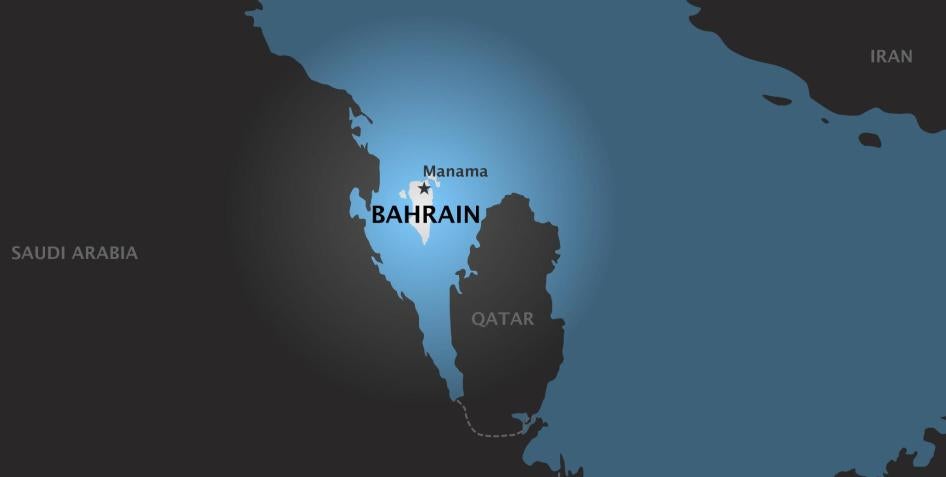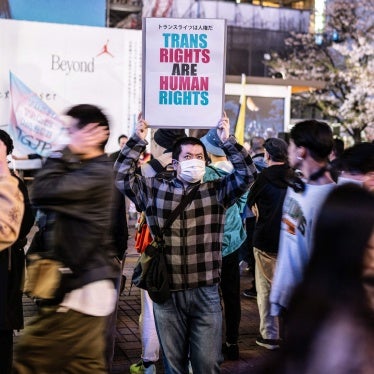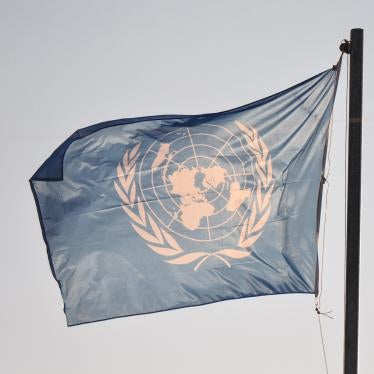The news refugee Bahraini footballer Hakeem Al-Araibi was detained by the Thai authorities on a “red notice” by Interpol has rocked the sports world. A “red notice” is a request to locate and provisionally arrest a person pending extradition. Human Rights Watch has documented “red notice” misuse by China and other countries for politically motivated and wrongful arrests. In the latest turn to the story, Thailand’s immigration chief now says Bahrain requested the player’s arrest in advance of his arrival in Thailand, which suggests he was under surveillance even in Australia. Although the notice was lifted by Interpol, Al-Araibi is still in a Thai detention centre facing imminent deportation to Bahrain, where he risks imprisonment and torture.
In 2012, Al-Araibi came forward to say Bahraini authorities had arrested and tortured him in detention, allegedly for his brother’s political activities. In 2014, Al-Araibi was sentenced in absentia to 10 years in prison for allegedly vandalising a police station – charges he denies, pointing out that at the time of the supposed crime, he was playing in a televised football match for his local club Alshabab in Bahrain.
“They blindfolded me,” Al-Araibi told The New York Times, describing the torture he endured at the hands of Bahraini officials in 2012. “They held me really tight, and one started to beat my legs really hard, saying: ‘You will not play soccer again. We will destroy your future.’”
Al-Araibi escaped to Australia in 2014, where he was granted refugee status in 2017, and he now plays football for semi-professional club Pascoe Vale FC in Melbourne.
But while on a holiday in Thailand with his wife last month, he was stopped at Bangkok airport and he now finds himself in a tug of war between Australia and Bahrain. In the middle of this battle is Thailand. Al-Araibi’s fate lies in their hands, and Fifa can and should influence their decision – but has not responded to Human Rights Watch’s request for a statement on his case.
Fifa, the powerful global football federation, has clear rules on player rights, human rights and human rights defenders, and has the leverage to prevent the refugee football player’s forced return to Bahrain. That means Al-Araibi’s case is a true test of Fifa’s new human rights policy: will Fifa stand with a football player and defend him against rich and powerful human rights abusers like the Bahraini government?
Fifa needs to make an urgent intervention to help Al-Araibi avoid a forced return to Bahrain where he risks persecution
Sheikh Salman is also a Fifa vice president. Article 3 of the Fifa statutes, the organisation’s constitution, says, “Fifa is committed to respecting all internationally recognised human rights and shall strive to promote the protection of these rights.” The organisation’s Human Rights Policy further says, “Fifa is committed to helping protect the rights of football players and will continually evaluate existing regulations and processes and, if necessary, consider additional measures….”
In view of what has been happening with other peaceful political Gulf critics, Fifa needs to make an urgent intervention to help Al-Araibi avoid a forced return to Bahrain where he risks persecution.
The outcome of a similar case should have Fifa deeply concerned. According to a report by Amnesty International and UNHCR, Ali Haroon, the last Bahraini dissident repatriated from Thailand, was “severely beaten, shackled and put into a wheelchair before being forcibly placed on a flight to Bahrain….Subsequent reports by Bahraini human rights organisations and media outlets indicated that Haroon had sustained such severe injuries prior to arriving in Bahrain he was transferred to a hospital upon his arrival.”
This case bears striking similarities to Al-Araibi’s. Like Al-Araibi, Haroon was a peaceful critic of the Bahraini government, and was extradited by the Thai authorities on the basis of an Interpol “red notice” arrest warrant. Moreover, there is every reason to fear the Thai courts and immigration authorities will not protect Al-Araibi’s rights. Thailand has long failed to respect the legally binding principle of “non-refoulement,” where states are prohibited from returning an individual to a country to face torture or other serious human rights violations.
Human Rights Watch has documented how, in recent years, Thai authorities have forcibly returned numerous refugees and asylum seekers, including sending 100 Uighurs – an ethnically Turkic, predominantly Muslim minority – to China, where they face persecution and internment camps.
The end game for Hakeem Al-Araibi should not be a forced return to the country he has fled. Fifa needs to find its voice to defend this player before it is too late.
-------------
Minky Worden is director of Global Initiatives at Human Rights Watch and oversees the organisation’s work on human rights and sports.









